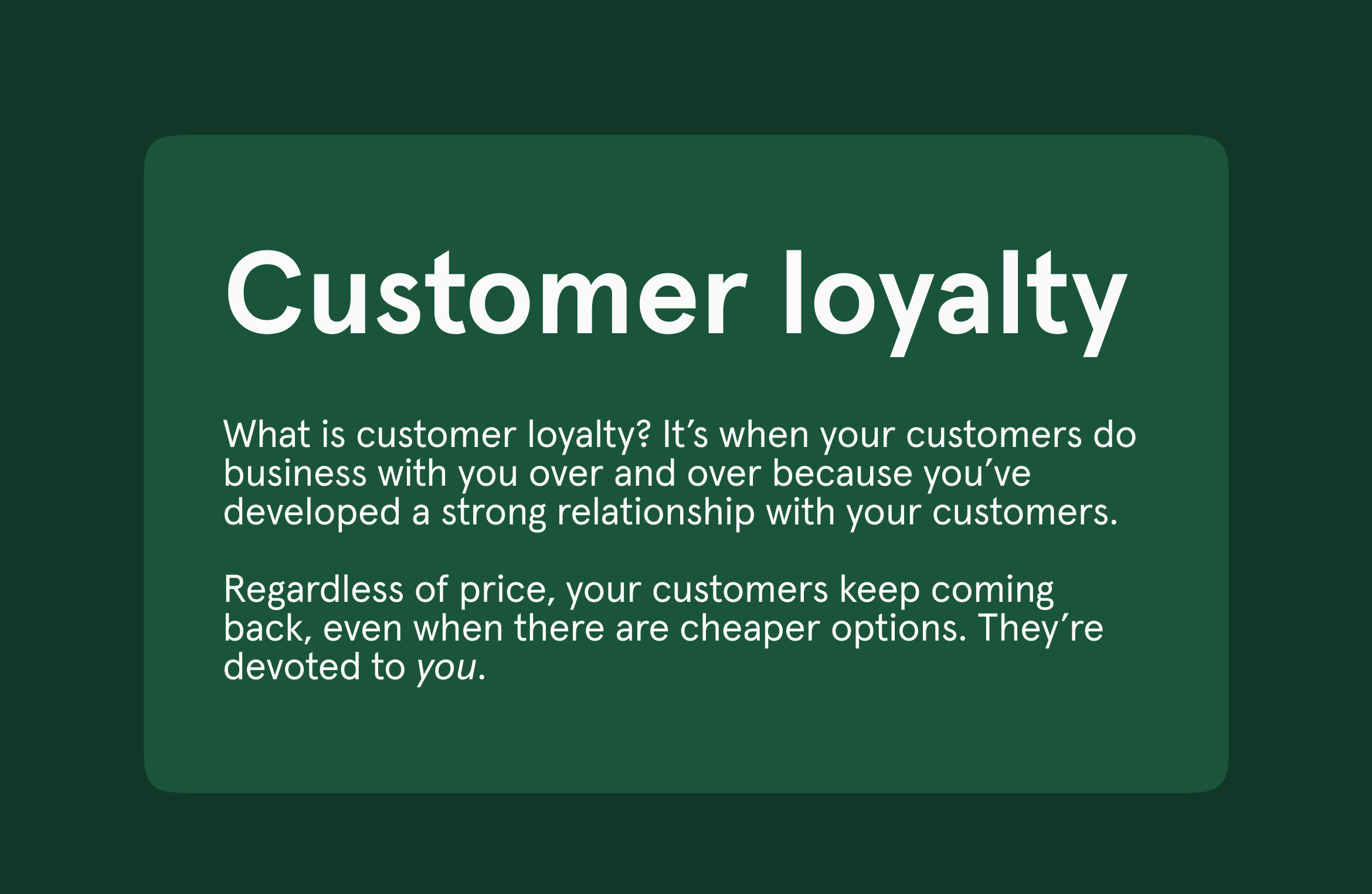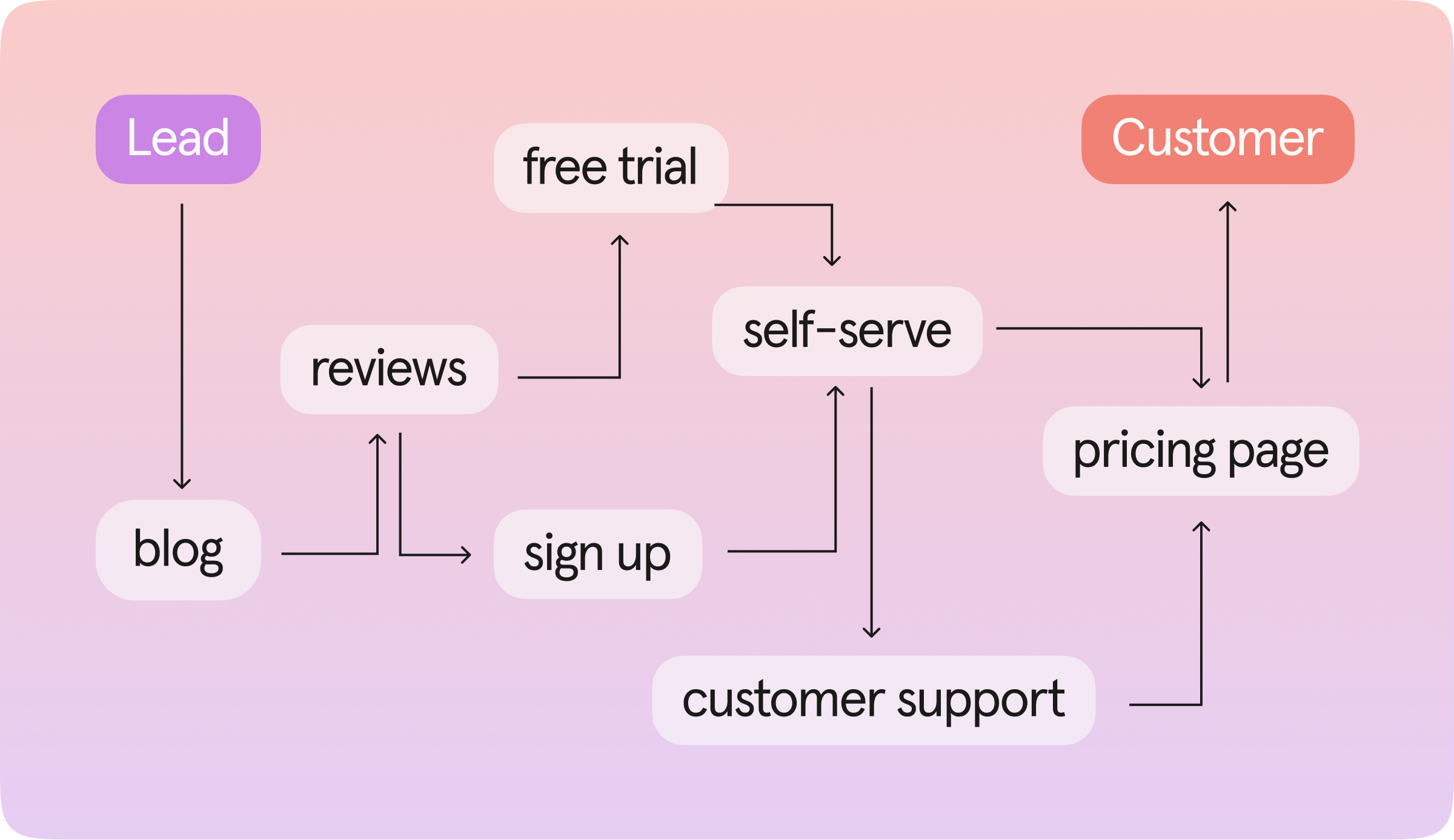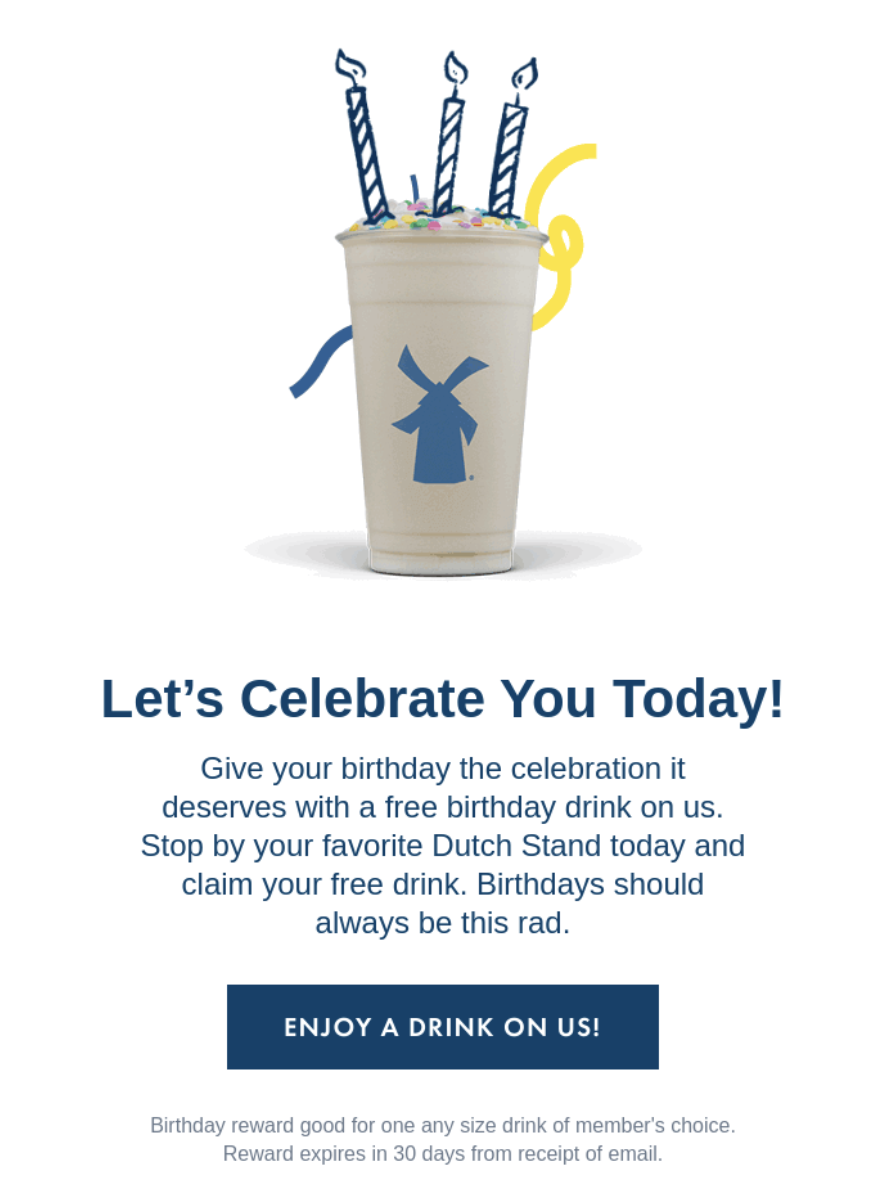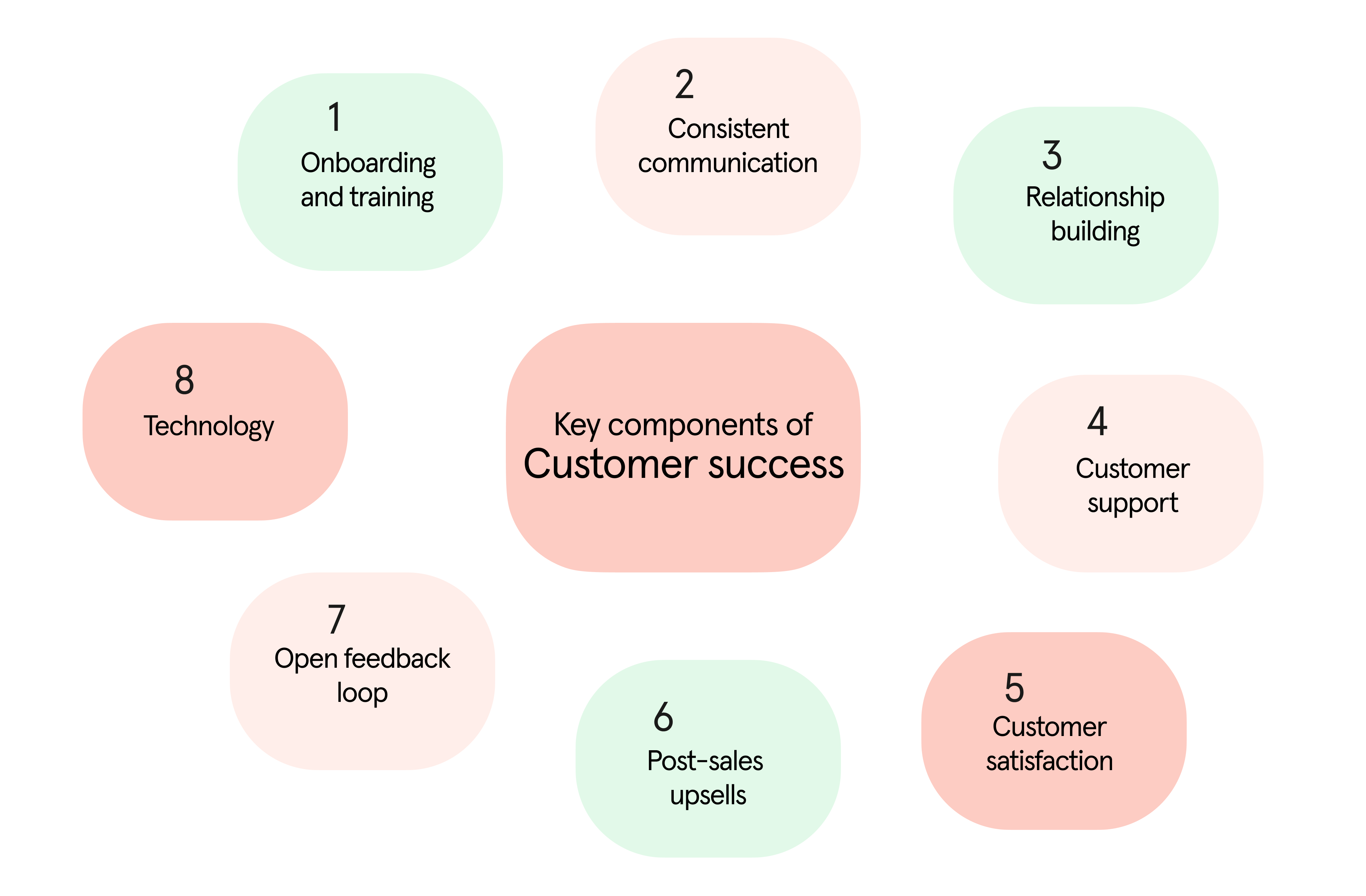Our view at Stack - Typeform is our go-to software if we need to ask a set of structured questions of a group of customers, prospects or leads. In summary, Typeform combines aesthetics, functionality, and flexibility. User-friendly form builder with interactive design, versatile question types, real-time data collection, 500+ integrations, and diverse templates. Ideal for engaging surveys and lead generation.
We spend hundreds of thousands—if not millions—of dollars every year on advertising and marketing campaigns. We hope our efforts will bring in more customers… more revenue.
And we know that effective marketing works. But there’s another high-impact (and simple) strategy that we sometimes overlook: customer loyalty.

Customer loyalty is more than just earning points with every purchase or VIP access to discounts—it’s about building genuine relationships with your customers. We’re showing you how to do just that.
Latest posts on Tips
But first? Let’s explore why customer loyalty is vital to your customer retention plan and overall marketing strategy.
Why customer loyalty matters
Whether you’re a B2B tech company focused on maintaining or growing your monthly recurring revenue (MRR) or a B2C ecommerce brand, loyal customers are crucial for your success. Here’s why:
-
Loyal customers often share their experiences with your brand on social media or with friends and family—they’ll advertise for you. And the customers they refer are between 16 and 24% more loyal.
-
52% of customers report going out of their way to buy from their favorite brands. If they’re loyal to you, they’ll continue buying from you, even if it’s not the most convenient or cheapest option.
-
Bain & Company found that your top 10% of customers order 3x more per order than the rest. After two and a half years of loyalty, they spend 67% more than their first purchase.
-
Customers who have an emotional connection with your brand also have an average 306% higher customer lifetime value.
So, if you want repeat customers who spend more, more often, and bring in new business for you, start prioritizing customer loyalty. We’ve got six easy but effective strategies for improving customer loyalty.
6 proven methods to increase customer loyalty and engagement
A customer loyalty program is a good place to start as you begin strategizing how to improve customer loyalty.
These six customer loyalty tips go beyond points and discounts—they show you how to build the customer relationships that create loyalty.
1. Get to know your customers (and their journey with your brand)
Companies that rank high in brand and customer loyalty grow revenue 2.5x faster than other businesses. These very real numbers emphasize what we already know: customer loyalty isn’t a nice-to-have or fluffy metric. It’s a must-have for business growth.
But loyal customers rarely start out that way. Instead, smart brands build deep emotional connections with them to earn customer loyalty over time. And they do it by leveraging customer data to create the personalized journeys that customers demand.

-
What customers want and expect from you—like tailored experiences and fast customer service
-
The existing customer experience (CX) and how to improve it
-
Current customer challenges—and the solutions that can address those challenges
-
How to personalize experiences—like more accurate product recommendations or making customer support available through social media
-
Where customers experience friction in the customer journey
-
And much more
Once you have customer data, act on it. Does feedback consistently tell you that customers want instant support? Consider creating support chatbots. Do customers struggle with your onboarding process? Creat custom onboarding resources.
When you understand your customers, you can start building trust and relationships—necessary prerequisites to customer loyalty.
2. Deliver consistent quality
Everyone wants a good deal—price is certainly a motivator in where we shop. But for customers who are loyal to your brand, it’s not a top consideration. They stick by you, even when you’re not the most affordable option (just look at Apple’s loyal customers).
Now let’s say your SaaS platform is reliable, the customer support is second to none, and your software consistently helps customers achieve business outcomes. Not only are you establishing that they can trust you to deliver on your promises, but you’re slowly building customer loyalty by giving customers every reason to stick with you.
3. Reward their loyalty
So many people enjoy being rewarded for their loyalty that 64% of those in loyalty programs reported an increase in purchasing frequency, with nearly a third willing to pay more because they value their bond with the brand.
While rewards look different for every company—points, discounts, VIP experiences—they all come down to the same thing: showing customers you appreciate them (and their loyalty). Rewarding customer loyalty expresses gratitude while incentivizing repeat purchases.

4. Provide exceptional customer service
If you have a quality product and prioritize creating genuine connections with your customers but still can’t improve customer loyalty, you might have a customer service issue.
We all know that customers expect stellar service, but the impact of wonderful (or poor) customer support might be more than you expected. According to Zendesk’s Trend Report:
-
76% of customers would switch to your competitor after multiple bad customer service experiences
-
Over 80% say a positive customer service experience increases the chances they’ll buy from you again
-
90% will spend more with companies that personalize customer services
And even if you make a mistake, nearly three-quarters of customers will forgive you after receiving exceptional service. But what’s the difference between good and bad customer service?
Good customer service:
-
Makes customers feel heard and valued
-
Provides support quickly—chatbots are becoming the new standard
-
Gives customers the white-glove experience, including user-friendly systems to submit tickets, complaints, and feedback
-
Uses data to provide personalized support
-
Takes an omnichannel approach—your customers can get support no matter where they reach out
-
Actually resolves their issues
5. Personalize the customer experience
Want to learn how to improve customer loyalty through personalized experiences? Check in with your customers regularly and leverage customer data. Because customer loyalty is about building relationships, you should continually look for ways to keep customers happy.
But beyond that, you want to tailor every experience for your customers—one-size-fits-all won’t cut it anymore. Instead, create experiences that are personalized for their unique needs, like:
-
Product recommendations based on previous purchases
-
Custom demos based on specific needs
-
Tailored communications based on stated preferences
-
Personal touches in conversations, like first name, milestones, and birthdays

-
Compelling content delivered at the right time in the customer journey
-
Improvements based on customer feedback
-
Communication on preferred channels, like social or email
According to McKinsey, over 70% of consumers expect customers to deliver personalized experiences. And organizations that grow faster drive 40% more of their revenue from personalization than slower-growing businesses.
Ethical data practices come into play here, but it’s also about using the data customers share with you. If they’re giving you their data, they expect you to use it to create a better experience for them.
Not only does this build trust and give customers what they’re looking for, but it shows them that you understand what they need and are willing to go above and beyond to make their experience with you a good one.
6. Ask for—and act on—feedback
The most straightforward way to boost customer loyalty? Ask your customers for feedback.

Customer satisfaction (CSAT) or net promoter score (NPS) surveys can quickly gauge how happy customers are. But Zendesk also suggests collecting more broad customer feedback, like:
-
Anecdotal feedback from your customer service team
-
Online reviews
-
Social media mentions—positive and negative
-
Direct customer feedback about your product and support
It’s one thing to gather feedback—but it’s what you do with it that matters. Show customers you appreciate their time and respect their feedback by taking what they say seriously and implementing it. This can help improve customer loyalty and customer retention over time.
Customer loyalty, word-of-mouth, and reviews
We can’t discuss loyalty tips without exploring the impact of word-of-mouth marketing and online reviews. You want to do everything you can to boost customer loyalty, but, if you do it right, your customers will do some of the heavy lifting for you.
Whether it’s on Amazon, an online retailer’s product page, or reviews on G2, 95% of customers read online reviews before shopping. And nearly 60% will pay more for products that get positive reviews.
And we know loyal customers talk about the brands they love online, on social media, and with friends and family. Make sure they’re saying positive things about your brand by using the six tips in this blog.
As your customers spread love for your brand, they’ll help build your brand reputation—and trust—among potential new customers who may turn into your most loyal customers down the line.
Customer loyalty takes time. But if you focus on:
-
Creating real relationships with your customers built on trust
-
Providing exceptional—and personalized—service
-
And collecting and using customer feedback for their benefit…
You can quickly realize the benefits of lasting customer loyalty. We can’t do it for you, but we can make data collection and getting feedback effortless with forms worth filling out.
Try Typeform and start gathering the feedback you need to understand your customers and build the trust required for true customer loyalty.
If Typeform is of interest and you'd like more information, please do make contact or take a look in more detail here.
Credit: Original article published here.
